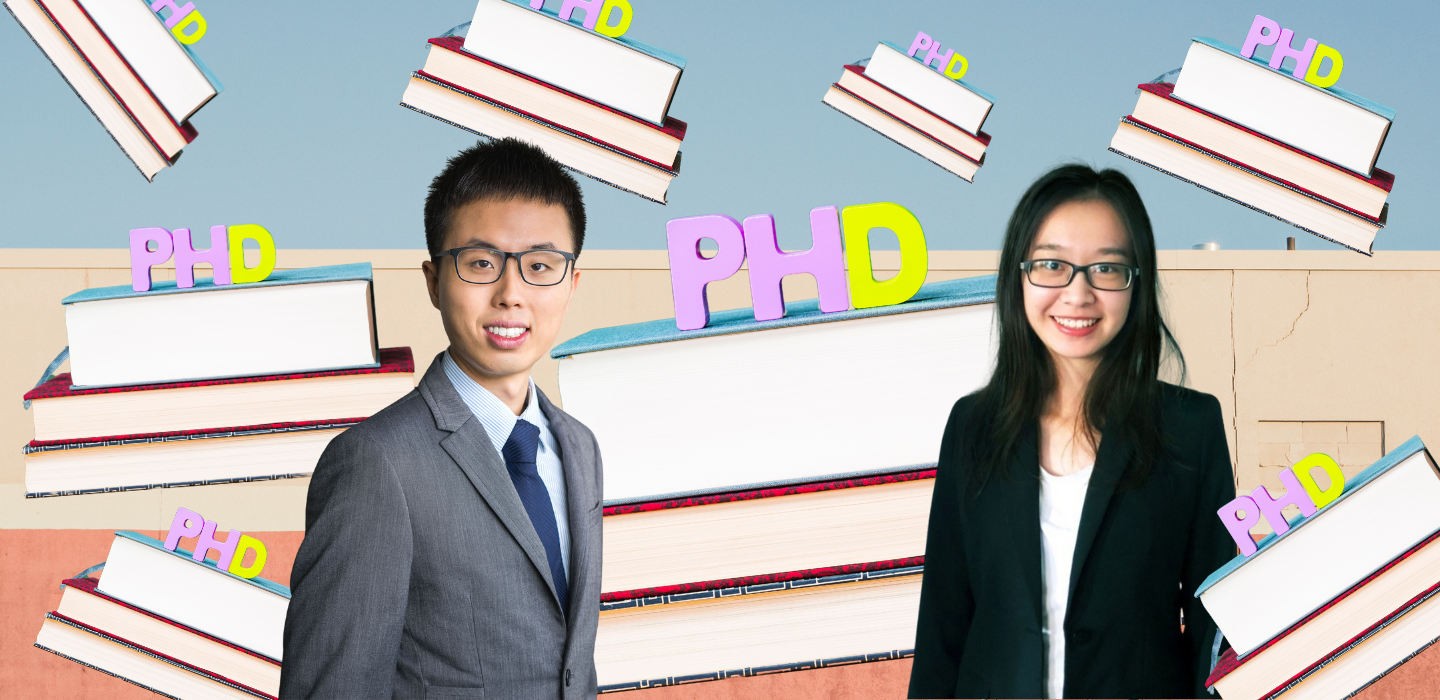Teachers shape lives. This is even more so for those who teach PhD students, many of whom will graduate to become professors and shape the next generation of leaders. This story on PhD student Yan Liuxin and her supervisor Associate Professor Sam Yam, is part of a Teachers’ Day series.
PhD student Yan Liuxin was initially scared of her supervisor. Associate Professor Sam Yam looked very serious, like the type who wouldn’t allow any jokes. She, and other research assistants, was afraid of talking to him.
Then one incident changed her impression.
The research team was doing field research in a library on campus. Then Sam’s phone rang and Liuxin had to help answer this call, which came from another professor. She felt a pang of anxiety.
Sam noticed that and said, “This professor is the second one in line in our department that you should be least afraid of.”
“Who’s the first one?” Liuxin asked naturally.
Confidently, Sam said, “Of course it’s me.”
“His research assistant and I just looked at each other and we could not stop laughing, because we knew how nervous we were all the time,” recounted Liuxin. “So after that, we realised that Sam does tell jokes and he’s actually humorous…that I don’t have to be too nervous when talking with him.”
Sam’s humour was evident in the interview. When given the opportunity to ask Liuxin a question that he had always wanted to ask, Sam asked coolly if the student community gossiped about faculty members.
There was a slight pause. Then Liuxin quickly answered that the students do talk about their experience with individual professors, both good and bad. But besides this, the students discuss about research matters as well.
Learning something new each time
A second-year PhD student, Liuxin does research about the dark side of organisations, such as why people stereotype or mistreat others when in the workplace. She has also conducted some studies on working with technology, such as AI and robots, and how those experiences differ from the traditional workplace experience. Each time she did a research project under Sam, she learnt something new.
Liuxin shared, “In terms of research, Sam is really knowledgeable and can always give me good suggestions regarding how to frame my research question, how to design studies, and importantly, how to push the project forward and present your ideas in the final papers.”
Having the students’ best interests in mind
She also appreciates him for having students’ best interests in mind. “I think it’s very nice of him to really put himself in our shoes and telling us what will be the best way to go, for you, but not for himself,” said Liuxin. “He doesn’t have to do this, but in this way, it really helps us move in the directions or the career path that we want to go.”
To her, this trust and support from her supervisor help to reduce some of the stress in PhD life. The rigour is something that Sam can relate to. He recounted that 10 years ago, when he was still a PhD student in the University of Washington in Seattle, he would work almost everyday. “On holidays, I would be very excited about the holiday, not because of the holiday per se, but because of free parking on campus.”
He has taught in NUS Business School for six years now. Besides being Dean’s Chair, he is also Assistant Dean (Faculty Development). Teaching is enjoyable, and learning his students’ positive evaluation of his classes would make his day. Sam does not like the preparation work before class though, neither does he like grading.
The journey will get easier
While academia can be tough and require many hours of work, Sam felt that as long as one works hard, career progression will happen over time, and things will get easier.
Proactiveness is key. He noted that some PhD students are very quiet and like to do things on their own, or do with one or two faculty members. Sam said, “I think to be successful in this field, you have to be very proactive in reaching out to people, not just within NUS, but outside of NUS, with a broader community of research.”
To Liuxin, it is this kind of advice, and other mentoring experiences, that make her more steadfast in her academic journey. Doing a PhD can be tough, but there will always be laughter that marks the fond memories of the PhD years.



